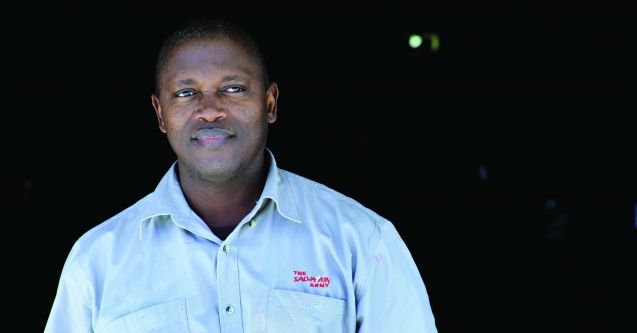Freetown to freedom
15 June 2015

Edward Conteh is a refugee from Sierra Leone. He was born in the northern village of Makeni, 200km from the capital, Freetown, in 1970. He lived with his parents, six brothers and sisters, and six step-brothers and sisters. Life was pretty good.
They were a middle-class family, freely able to attend school and university. Early in his life, Edward’s family moved to Freetown. At university, Edward studied printing technology and social welfare. After study, he worked in a bank to save money for a printing business.
The outbreak of civil war in 1991 interrupted Edward’s plan. Over the next 10 years, up to 300,000 people would be massacred and 2.5 million forced to flee their homes for refugee camps in neighbouring countries.
Edward was among those forced to escape to stay alive.
In Freetown, his wife, Beola, was a known activist. Her life was constantly in danger. By association, Edward was also a target.
Beola was attacked and badly beaten. She and Edward were told that for their own safety, they needed to leave Freetown and find safe refuge somewhere else. They were on a death list.
They travelled by boat under the cover of darkness to a landing spot just over the border in Guinea. From there, they walked for up to four weeks to a United Nations refugee camp.
There were others from Sierra Leone on the walk. “It was like the Hebrew exodus from Egypt,” Edward says.
It was dangerous. Guinea soldiers were always on the lookout in the hope of turning around the refugees. They could be killed at any time.
Edward and Beola reached the UN camp, living in a tent for the next 10 years. Thousands of refugees shared the camp compound.
Gratitude to God
Looking to improve their life, Edward and Beola tried to integrate into the Guinea population. They attended a church outside the camp. Somebody at the church told them that Beola’s aunt had successfully settled in Australia.
They started a search for her. She was living in Sydney. Through lengthy negotiation with the UN, Australian Immigration and The Salvation Army's Auburn Corps in western Sydney – especially Salvos Legal head Luke Geary – Beola made contact with her aunt.
In 2009, Edward and Beola arrived in Sydney, and were met at the airport by then-Auburn Corps Officer Captain Nesan Kistan and other corps members.
They attended an Auburn meeting to thank everybody for their assistance – and to especially thank God. In the same year, they became Salvation Army soldiers.
They hadn’t even heard of The Salvation Army until the Sydney link surfaced.
Edward is now concierge at an Auburn complex that houses the local corps, the Greater West Division headquarters and assorted Salvation Army services. Beola works in aged care. She still suffers from the injuries she received in the Freetown beating.
Edward is grateful to God for his deliverance.
“God is not a bad person. God gives us the strength in our experiences,” Edward says. “He has brought us here [Sydney] for his purpose to spread the Good News of his kindness.
“We came on a journey [from Sierra Leone]. We thank God with all our heart for delivering us to this place [Australia]. We celebrate with great joy and gratitude for what God has done and is still doing for us.”
By Bill Simpson
Photo credit: Adam Hollingworth